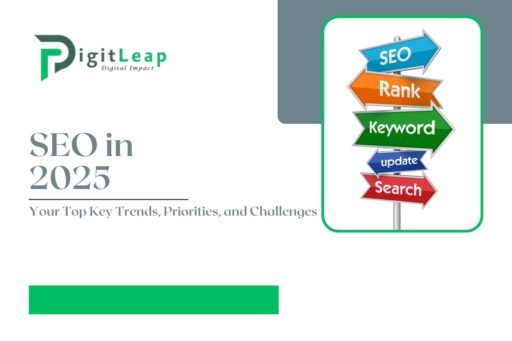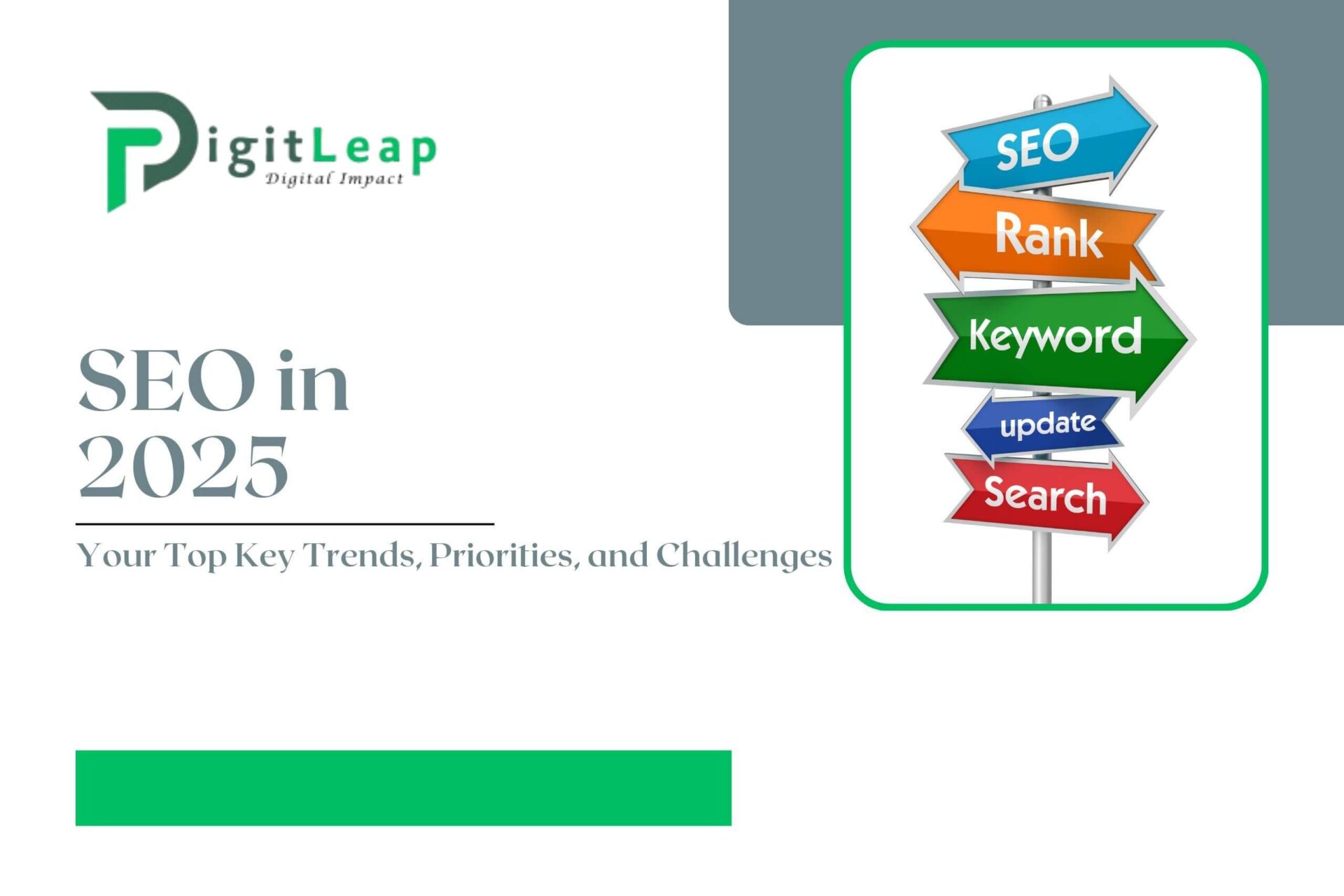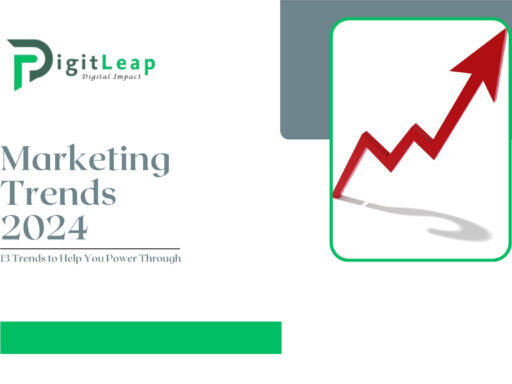SEO in 2025: Your Top Key Trends, Priorities, and Challenges
As digital landscapes grow more complex, SEO in 2025 is set to evolve with innovative trends, tools, and priorities, making it essential for businesses to adapt if they want to stay relevant. Search engine optimization (SEO) is no longer just about ranking for keywords—it’s about understanding user intent, harnessing emerging technologies, and creating high-quality, personalized content that aligns with the modern user experience. Here are the top trends, priorities, and challenges in SEO for 2025 to help you succeed in this ever-changing space.
Key Trends Shaping SEO in 2025
1. AI-Driven Search Optimization
Artificial intelligence (AI) has already begun reshaping SEO, but by 2025, AI will play an even larger role in how content is ranked and discovered. Google’s AI algorithms, like RankBrain and MUM (Multitask Unified Model), are becoming more sophisticated in understanding the context, intent, and nuances of search queries. This shift encourages SEO professionals to focus less on single keywords and more on creating comprehensive, context-rich content.
With AI-driven search, it’s essential to write naturally and address user questions in depth. This trend prioritizes content that is helpful, informative, and addresses the core needs of the audience, making it crucial to create resources that stand out for both relevance and quality.
2. Voice and Visual Search Optimization
The rise of smart devices has led to a surge in voice and visual searches. People are asking devices like Alexa and Google Assistant for information and using visual search tools such as Google Lens to find what they need. This shift means SEO in 2025 will require an emphasis on conversational language, question-based keywords, and image optimization.
To optimize for voice and visual search, focus on incorporating long-tail keywords and natural phrases into your content. Optimizing images with descriptive alt text and including relevant metadata will help make your content discoverable through these emerging search methods, broadening your reach and improving user experience.
3. Core Web Vitals and User Experience (UX)
Google’s Core Web Vitals—metrics that assess loading speed, interactivity, and visual stability—have a major influence on rankings, and in 2025, these factors will be even more central. As users become more discerning, they expect a smooth, fast, and accessible experience on any device. SEO strategies will need to integrate web performance optimization, including mobile-friendly design, secure connections (HTTPS), and clean, user-centric interfaces.
Prioritizing UX isn’t just about meeting Google’s standards; it’s also about providing an enjoyable experience that keeps visitors engaged. By focusing on Core Web Vitals and enhancing UX, you’re more likely to satisfy both search engines and visitors, leading to better rankings and increased conversions.
4. Zero-Click Searches and Featured Snippets
Zero-click searches—where answers appear directly on the search results page without requiring a click—are becoming more common, thanks to Google’s focus on featured snippets and knowledge panels. In 2025, optimizing for zero-click searches will be a crucial part of SEO as more users rely on these instant answers.
To capture these prominent placements, create concise, informative content that directly answers common questions. Structured data, bullet points, and lists improve your chances of ranking for featured snippets, making your content more visible to users and establishing your site as a trusted source of information.
5. E-A-T (Expertise, Authoritativeness, Trustworthiness)
Google’s E-A-T guidelines are more relevant than ever, and in 2025, E-A-T will continue to be a significant factor in ranking high-value content. E-A-T is essential for industries like health, finance, and legal services, but it benefits all brands by building trust and credibility.
Demonstrating expertise means creating content that is well-researched, authoritativeness involves establishing your brand as a leader in its field, and trustworthiness requires transparency and accuracy. By following E-A-T principles, you not only improve rankings but also strengthen your brand’s reputation, which can have long-lasting benefits.
Priorities for SEO Success in 2025
1. Content Depth and Quality
Thin, keyword-stuffed content is a thing of the past. In 2025, Google rewards comprehensive, informative content that goes deep into topics, answering questions and addressing related aspects that users might find valuable. The priority now is quality over quantity, with content that provides real value taking center stage.
Investing in high-quality content that aligns with user intent and addresses multiple facets of a topic will improve both SEO and user satisfaction. In-depth articles, guides, and FAQs are highly effective for capturing long-tail search traffic and improving engagement.
2. Data-Driven SEO Strategies
As the competition for rankings intensifies, data-driven SEO is essential. Using tools like Google Analytics, SEMrush, and Ahrefs, SEO professionals can gather insights into search trends, track user behavior, and measure content performance. Data-driven strategies allow you to see what’s working, what isn’t, and adjust your approach accordingly.
Analyzing metrics such as bounce rate, time on page, and conversion rate can give you a clearer picture of your audience’s preferences. With these insights, you can create targeted, effective content that resonates with your audience and drives results.
3. Mobile-First Optimization
With the majority of searches happening on mobile devices, mobile-first optimization remains a priority in 2025. Google has shifted to mobile-first indexing, meaning that your site’s mobile version is the primary basis for indexing and ranking. Ensuring that your site is fully optimized for mobile can greatly impact your SEO performance.
Mobile optimization includes fast load times, easy navigation, responsive design, and minimal pop-ups. It’s also important to test your site on various mobile devices to ensure that the experience is smooth and functional for all users.
4. Emphasis on User Intent
Google’s algorithms are increasingly adept at detecting user intent, which means that understanding and addressing intent is crucial for SEO success. Keywords alone aren’t enough; you need to understand why users are searching and what type of content will satisfy their needs. Whether users are looking for information, making a transaction, or navigating, aligning content with intent boosts relevance and engagement.
Challenges in SEO for 2025
1. Keeping Up with Algorithm Changes
Google frequently updates its algorithms to improve search quality, making it a challenge for SEO professionals to keep up. These updates often shift the ranking factors, so staying updated on changes and adjusting strategies accordingly is crucial to maintaining SEO success.
Regularly monitoring industry news and Google’s algorithm changes can help you stay prepared. Having a flexible approach to SEO that allows for quick adjustments can make navigating these changes easier.
2. Managing Increasingly Competitive SERPs
With an increasing number of businesses investing in SEO, ranking on the first page of search results has become highly competitive. The popularity of zero-click searches and featured snippets also means that brands need to work harder to capture visibility on search engine results pages (SERPs).
To stand out, focus on providing value, building authority, and enhancing user experience. By delivering quality content and focusing on E-A-T principles, you can improve your chances of standing out in a crowded SERP environment.
3. Adapting to Privacy Regulations and Limited Data
As privacy regulations become more stringent, marketers may have access to less user data than before. With restrictions like GDPR and the phasing out of third-party cookies, adapting to data limitations is a challenge for SEO in 2025.
Focusing on first-party data and ethical data collection practices can help you navigate these regulations. Engaging users to voluntarily provide information, such as through subscriptions or interactive content, also offers valuable insights without compromising privacy.
4. Balancing SEO with User Experience
While SEO is critical, so is providing an enjoyable experience for users. Striking a balance between SEO best practices and user-centered design is essential. Over-optimization can lead to keyword stuffing or forced links, which may harm UX. In 2025, SEO professionals must integrate SEO seamlessly into quality content and ensure that it enhances, rather than disrupts, the user experience.
Conclusion
SEO in 2025 demands adaptability, a deep understanding of user intent, and a commitment to quality content. By staying on top of trends like AI-driven search, voice optimization, and data privacy, brands can create strategies that align with Google’s evolving algorithms and meet users’ expectations.
At Digit Leap, we’re here to help you navigate these trends and overcome the challenges of modern SEO. With a focus on data-driven insights, user-centric design, and ethical practices, we empower businesses to reach new heights and thrive in a digital-first world.






